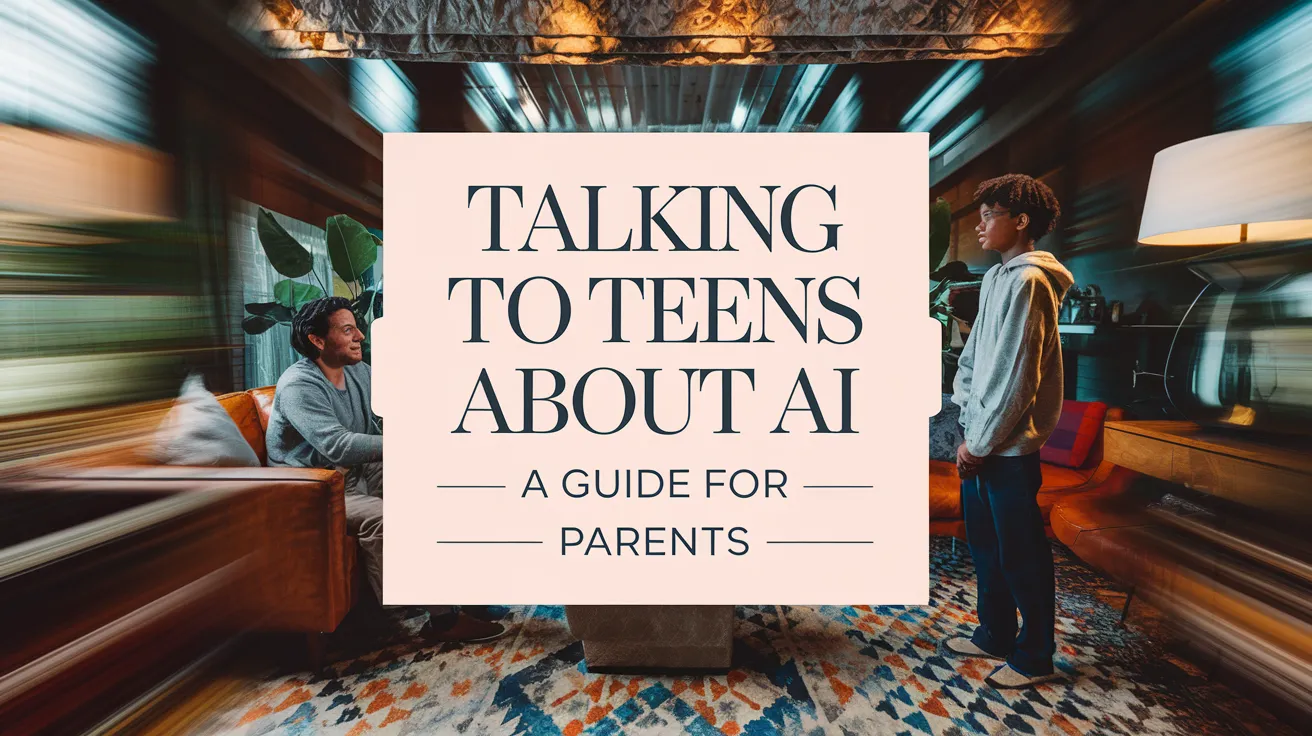Talking to Teens About AI: A Guide for Parents

As artificial intelligence (AI) continues to permeate various aspects of daily life, parents are increasingly urged to discuss these technologies with their teens. Understanding the opportunities and challenges presented by AI is essential for fostering responsible usage. This article outlines the importance of parental guidance in helping children navigate AI’s complexities.
Experiences of Teen Users
Nicholas Munkbhatter, a former 14-year-old user of ChatGPT from Sacramento, California, embodies the experience of many teens engaging with AI since its release in late 2022. Initially excited, Munkbhatter soon recognized that while AI could answer his questions, it lacked the ability to facilitate the deeper learning he craved. This sentiment echoes a growing concern among experts who advocate for proactive parental involvement.
The Role of Parents in AI Education
Education and child development specialists emphasize the need for parents to instigate conversations about AI when children are still in elementary school. Marc Watkins, a lecturer at the University of Mississippi, suggests that parents allocate time each week to educate themselves on AI technologies, thereby being better equipped to guide their children. Engaging in activities such as playing Google’s Quick, Draw! can help illustrate the strengths and limitations of AI, offering a fun yet informative dynamic to these discussions.
Collaborative Learning with AI
In today’s evolving landscape, parents are often learning about AI alongside their children. Ying Xu from Harvard University recommends that parents utilize AI technology collaboratively by asking questions together and evaluating responses. This approach not only fosters curiosity but also instills a critical viewpoint toward AI-generated answers. Parents should encourage their children to fact-check this information using reliable sources, thereby cultivating a culture of discernment.
The Positive Aspects of AI Usage
There are potential benefits when AI is harnessed appropriately for educational purposes. Research has demonstrated that certain AI tools can enhance student learning. For instance, Xu’s collaboration with PBS Kids showcased that AI-augmented learning materials led to greater engagement and understanding among children compared to traditional formats. Munkbhatter also acknowledges that AI can assist in problem-solving when used properly, suggesting an approach that emphasizes process over mere answers.
Recognizing and Mitigating Risks
Despite benefits, the dangers associated with generative AI remain a pressing concern. Dr. Darja Djordjevic from Stanford University emphasizes the importance of recognizing the warning signs of potentially harmful interactions between teens and AI. Instances of AI chatbots providing unsafe responses related to mental health, body image, and substance abuse have raised alarms. The necessity for parents to be vigilant about their children’s usage of AI becomes even clearer, as does the importance of discussing AI’s limitations.
Establishing Boundaries for AI Use
Creating reasonable rules surrounding AI usage is vital in fostering healthy habits. Experts suggest that parents co-develop these guidelines with their children, specifying safe and appropriate uses of AI tools. While outright bans are often ineffective, structured discussions and clear boundaries can help mitigate potential risks. Parents should encourage outdoor activities and interpersonal interactions, counterbalancing time spent engaging with AI.
Impact of Parental Conversations
Ultimately, conversations about AI can greatly influence how teens understand and interact with these tools. As Watkins suggests, while advertisements may fade from memory, the meaningful discussions parents have with their children will have lasting impacts. Despite the complexities that AI introduces to child-rearing, proactive and informative conversations can empower teens to navigate this landscape responsibly.